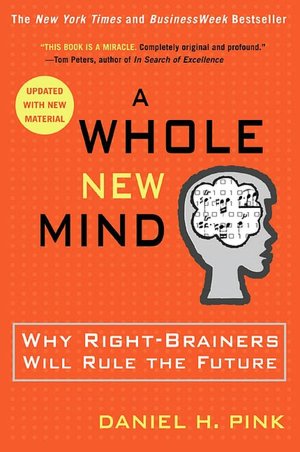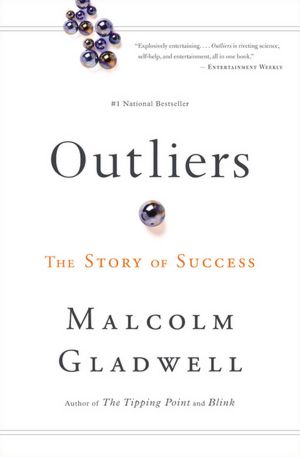Think left and think right and think low and think high. Oh, the thinks you can think up if only you try! ~~Dr. Seuss
I've been reading and listening to some interesting books lately. In many ways the books draw many of the same conclusions in different ways. Obviously, we aren't talking fiction here. The first two I've been listening to, the third I actually read (no, I haven't seen the movie). There have been parts in each book that bring up something I remember from one of the other books. The first two books encompass different ways of looking at genius and the role of right brain thinking in the future. Left brain thinking used to be the way, but Daniel Pink makes a strong argument for promoting right brain thinking. Right brain thinkers are those people who not only see the big picture, but they think outside of the box. Right. Yep, that's me. Right brainer, mostly. Google right brain vs. left brain quiz and the search will land all kinds of choices. I took a few, and they all came back with my right brain taking a slight edge over my left brain. Hunh. Imagine that. Malcolm Gladwell makes a case for genius being a product of time, place, and practice rather than person (or their right or left brains). Bill Gates became Bill Gates not only because of the unique opportunities he was presented with but also because of how he used those opportunities. It would seem like these two titles wouldn't get along, and yet somehow they do.
What does Waiting For Superman have to do with either of the previous titles? It's a different way of looking at education, from a couple different viewpoints. Do you need to think outside the box to embrace some of the changes that are proposed, or to alter them to suit your needs? Yes. Do you need to be a little right thinking to do so? Perhaps. Will your previous life experiences color your views? Yes.
Can you change from left thinking to right thinking if that's the way to success? I haven't gotten to that part of Daniel Pink's book yet, and since it's an audio version I don't actually know if there is part of the book on that. So I don't know what the experts say, but I think you can. You may not be able to switch over entirely, but I think it isn't a bad idea to give it a try. You certainly wouldn't lose anything except a bit of your time.
Where does right brain thinking come from? I don't know. Books? Genetics? Situations? Is it possible to change from seeing a problem by concentrating on one part of it to seeing a problem with all of it's causes, ramifications, effects, and beyond? Do you know when you're only seeing part of the whole? When I was a kid, I got into a "gifted" program. I got to do some extra fun things, I got to be creative and think outside of the box. We learned about problem solving. Not problem solving math problems, or grammatical problems, but future problem solving. I don't remember much about the specific problems, I just remember that they were heavy topics at the time, and we were told to find ways to solve them. A whole process ensued, and creativity was a huge factor in it. Why did the "gifted" class get to hone our critical and creative thinking skills? Perhaps it's because this was during the 80's when the left brain still reigned supreme.
One fun thing I remember from this class is being shown an object and then asked to list in a minute or two as many things as you could think of that it could be used for. How my imagination flowed! Mini-brain storms is what they were. I could list until the time ran out, often with more ideas than time allowed. (Or are my rose-colored glasses tinting my memories?) Daniel Pink mentions this in his book, or was it Malcolm Gladwell?

Play this game with a kid: find a rock or stick and take turns listing off things it could be used for. Anything and everything is a good answer as long as it uses the object. Do you run out of ideas before the kid does? Remember, there are no wrong answers as long as the object is being used in some way. Remember the "what if" stage of childhood? How do answers to the game of "what can this be used for" change before and after that phase? It's a bunch of food for thought. How do you recapture some of that "what if" attitude of endless possibilities? Will answering questions about what a tin can can be used as help you get it back? I don't suppose it would hurt to stretch your brain a little.
Imagination. Fun. Thinking out of the box. Creativity. Is it any wonder I enjoyed these books?
Waiting For Superman is a look at how our education system is failing. I started reading it because I'm interested in the ways the education system is trying to improve. What I found is that much of what we're looking for in improving our education system is reflected in Outliers by Malcolm Gladwell and A Whole New Mind by Daniel H. Pink. It was an interesting thing to be reading/listening to these books all at around the same time. They each played off of the other in ways I didn't really expect when I checked them out.
What do you think? Have you read any of these books or similar works by other authors? Are you a lefty or a righty?What's going on in your brain?
Isn't the brain fascinating??
The creative person is both more primitive and more cultivated, more destructive, a lot madder and a lot saner, than the average person. ~Frank Barron, Think, November-December 1962



No comments:
Post a Comment